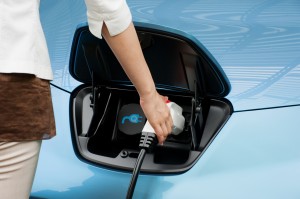 According to a new study by psychologists at Germany’s Chemnitz University of Technology, drivers who regularly worry about an electric vehicles’s (EV) battery level don’t maximize their vehicle’s potential. The study found that worried drivers overcharged their EVs on a regular basis. However, the study didn’t address how overcharging can lower the vehicle’s battery life and potentially strain electric grids.
According to a new study by psychologists at Germany’s Chemnitz University of Technology, drivers who regularly worry about an electric vehicles’s (EV) battery level don’t maximize their vehicle’s potential. The study found that worried drivers overcharged their EVs on a regular basis. However, the study didn’t address how overcharging can lower the vehicle’s battery life and potentially strain electric grids.
Feeling like you’re about to be stranded because your car runs out of juice is known as “range anxiety” in the EV business. The study at Chemnitz found drivers experienced range anxiety about once per month, and researchers proposed that feeling could worsen if there were no nearby public charging stations. EV manufacturers have long tried to dismiss consumers’ worry about insufficient mileage between charges. Then again, when new battery-electric cars like the Nissan Leaf lose power unexpectedly, range anxiety may be well founded.
The researchers discovered most drivers needlessly recharged their vehicle with 20 percent or more power left in the battery. This finding is important because frequent charging can overwhelm the electric infrastructure, which is already threatened by electric vehicles.
Experts estimate that EVs consume about a third of the power of a house, and warn that adding electric cars to a residential area could overwhelm transformers and even cause blackouts. A public charging network would ease drivers’ nerves, but would add an additional burden to the grid. EVs draw their power from a system that is not prepared to meet the increased demand.
Overcharging can also degrade EV’s battery at a higher rate. Fast charging a Nissan Leaf, for example, can decrease the battery life much faster than slow charging at home. And, replacing a dead EV battery isn’t cheap: a recent article from the UK states that a new battery pack could cost over $30,000.
With the harm overcharging can ultimately bring to their vehicles and the electric grid infrastructure, EV drivers unfortunately have more to worry about than just their range.
Image by Salvatore Vuono




